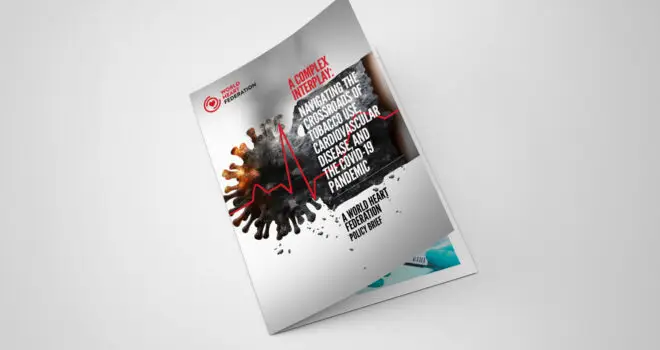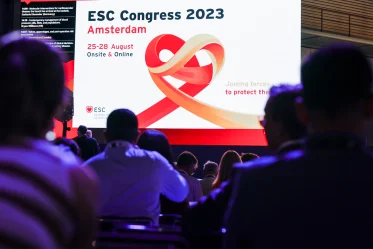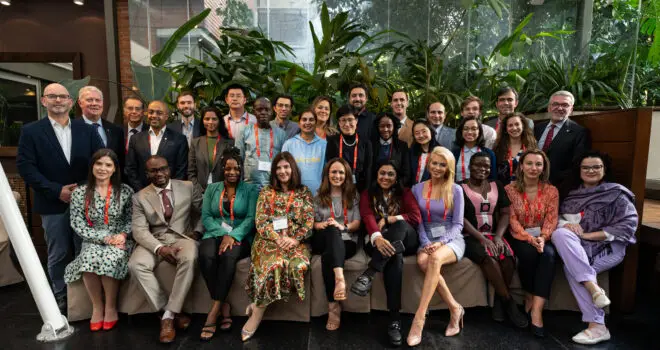Geneva, 17 April, WHF: In an open letter to G20 Heads of State, meeting virtually this Sunday, the World Heart Federation (WHF) calls for an equitable and generous emergency response to COVID-19. The proposed urgent measures include ensuring equal access to treatment and care, scaling up prevention in poor areas, addressing the shortage of health workers, and calling for industry’s responsibility.
WHF also calls on governments to reaffirm the World Health Organization’s essential role in the COVID-19 response and its unique capacity and global mandate to support public health systems during this critical time. This includes increasing much needed financial support.
The coronavirus (COVID-19) pandemic has left no country unscathed and health systems face challenges on multiple fronts. Cardiovascular disease (CVD), the world’s leading cause of death, is emerging as a common risk factor for people who have severe COVID-19 infection. Furthermore, COVID-19 can lead to cardiovascular complications, such as myocarditis and arrhythmias.
“In every country, doctors and healthcare workers are at the frontlines of an enormous struggle”, said Karen Sliwa, WHF’s President. “Our role as leaders of the global cardiovascular community is to ensure that we help them contain the disease and treat those who have fallen victims to it. It is our duty to respond to the needs of each patient in an equal manner, regardless of their geographical location or economic status. Let us seize this opportunity to put people at the centre of our decision-making. Health for all is in your hands.”
The epicentre of the virus has been mostly in powerful economies but even there heart patients have been subjected to deep inequalities in access to healthcare. WHF warns that this situation will be more acute in developing regions of the world where the outbreak of COVID-19 is spreading extensively and where access to running water and sanitation is limited, thus exacerbating a very urgent and unprecedented public health challenge.
WHF recommendations included in the letter:
Provide necessary health care in recognition of countries’ commitment to Universal Health Coverage: In September 2019, at the United Nations High-Level Meeting “Universal Health Coverage (UHC): Moving Together to Build a Healthier World,” world leaders endorsed the most ambitious and comprehensive political declaration on health in history. Faced by the COVID-19 crisis, it is crucial that leaders recognise the interconnectedness of UHC and health emergencies and remember their political commitments. Currently, at least half of the global population does not receive the health services they need. About 100 million people are pushed into extreme poverty each year because of out-of-pocket spending on health. WHF is calling on you to ensure that any vaccine produced is fairly priced and that everyone can get access to essential treatments.
Emphasize Preventive Measures: In some of the poorest countries, refugees, internally displaced people and people trapped in conflict zones do not have easy access to running water, uncongested spaces, or safe homes in which to self-quarantine. Around a quarter of the world’s urban population lives in slums. You must act now with a huge scale-up in prevention activities, including public communication and education, testing, contact tracing, and the provision of adequate water and sanitation in these areas before it is too late.
Protect and recruit additional health workers: The predicted global shortage of 18 million health workers to meet SDG 3 means that governments in rich and poor countries alike must not wait to rapidly expand free education and training for all urgently needed health workers. As previous emergencies like the Ebola crisis have demonstrated, community health workers can be rapidly and effectively trained and deployed to boost public education and community outreach efforts. The manufacturing resources of all nations must be mobilized immediately to produce the personal protective equipment urgently needed to protect all health care workers. Public healthcare for all is impossible without health workers for all – you can make it happen.
Private industry has a duty to work for the public: Governments must requisition or find other means to utilize all private healthcare facilities to increase capacity to treat and care for infected patients and to meet ongoing essential health needs – including treating people with acute cardiovascular events. The governments of Spain, Switzerland and the state government of Uttarakhand in India have demonstrated exceptional leadership in using private hospitals to ensure that beds are available for the sick. All countries must quickly follow suit. Furthermore, it is essential that any vaccine, effective treatment, or improved tests found or developed, are not subject to exclusive licenses or monopolies that would block their universal affordability and access. Medical equipment and medication embargos must be lifted. Fortunately, public investment is taking centre stage to accelerate global efforts to develop a vaccine, led by the Coalition for Epidemic Preparedness Innovations (CEPI), which has requested 2 billion USD to boost vaccine development. You can, and must, immediately meet this request. Together with the WHO, you can insist that free, universal access is a requisite of any such funding. We ask you to start now to establish a comprehensive plan for manufacturing and distributing a vaccine globally, free at the point of use, and know the world will thank you for your foresight.
Notes to editors
About WHF
The World Heart Federation is the principal representative body for the global cardiovascular community, representing more than 200 heart foundations, scientific societies, civil society, and patient organisations from over 100 countries.
Together with our Members, we are working to end needless deaths and build global commitment for improved cardiovascular health at the global, regional, national, and community levels.
We believe in a world where heart health for everyone is a fundamental human right and a crucial element of global health justice.


